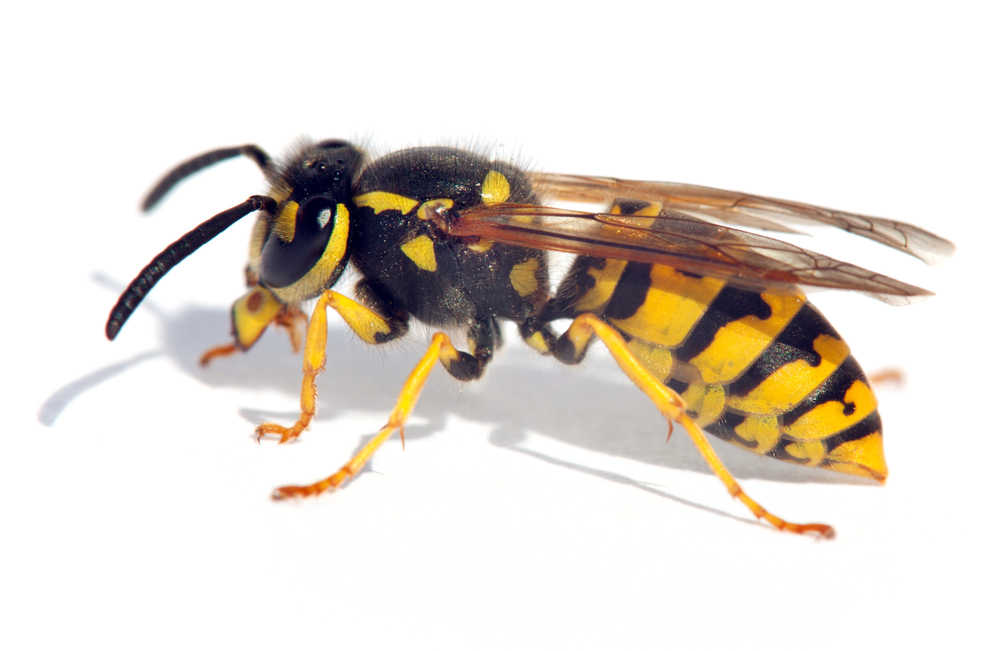What are Wasps and How to Protect Yourself from Getting Stung by Them?

When we talk about the creatures in the animal kingdom some give us a feeling of happiness. Dogs, cats, butterflies, parrots, baby elephants are liked by everyone but thinking about wasps would give you the dreads. Wasps tend to induce fear in the hearts of people but mostly they are not naturally aggressive to humans. They would not attack a person unless they are provoked or feel threatened by them. Whatever the reason behind a wasp sting one thing is clear that it hurts a lot and might even cause an infection.
What Are the Wasps?
Wasps are narrow-waisted yellow-jacketed flying insects that have stingers attached at the end of their abdomen. There are around thousands of different species of wasps known to mankind but the most common of them is the paper wasps. They have cylindrical legs, narrow and long waist, smooth shiny skin along with two pairs of wings. Wasps are much more active during summers with the increase in temperature you would see them more around you. They build nests to live and breed inside them, mostly they start to build nests in the spring. At the start, the nests are not much bigger than a single cell but with time it could become much bigger and longer.
What You Should Know About Them?
An adult wasp is mostly attracted to sugar-based treats which they find in flower nectar and ripe fruit juice. However, they also prey on other insects such as flies, grubs, caterpillars and much more to feed their young wasps. The young developing wasps’ liver inside their nests made of chewed wood mixed with saliva. They feed onto the hunted insects and live there until they develop into a complete adult.
Use of Wasps:
Where the word wasps seem scary at the same time, they have been of potential use to the farming industry. As they feed on insects and other pests, they are a great way to secure your farms and gardens from them. Moreover, when they fly from flower to flower to collect nectar, they become a great carrier of pollens. They might not be as good as bees but they do carry some pollen grains. These were some uses of wasps in the agriculture industry but their presence closer to your living location can be dangerous. Mostly the wasp’s colonies are away from the human environment but sometimes they could interfere with your daily life.
Removing Wasp Colonies:
Whenever you are stung by a wasp, they inject venom inside your body as a defense mechanism. Wasps stings are much different then bees, mostly a bee would leave the stringer in the flesh and die immediately. However, a wasp can remove stringers by injecting venom inside the body. This makes them much more dangerous than bees as they could sting your multiple times which can cause a lot of pain and even death in extreme scenarios. Therefore, don’t try to remove a wasp’s nest on your own and always call Wasp Exterminator Surrey experts to take care of it. They have the proper gear and training to remove these nests which ensure that no one gets hurt during the process.
Prevention Against Wasp Stings:
During summers you might visit a park where you could find yourself surrounded by wasps. The ultimate protection against their stings is to cover up all the exposed skin by wearing long sleeves shirts and long pants. Mostly they are attracted to flowered pattern shirts and fragrances. So, try not to wear many bright colors and use any kind of perfume when you are going outside. Stay away from any kind of flowers and if a wasp approaches you do not try to scare them away. Remain calm and stay still they would roam around you and fly away. However, if you feel that a swarm of wasps is flying towards you run as fast as you can and get yourself indoor. Despite taking all the preventions sometimes you or your friends might end up getting stung. You could treat that area with ice and vinegar to reduce the pain if there is a lot of itchiness then try to use some ointment. This not a doctor’s advice but some home remedies however, if you feel that you need medical attention or have allergies to insect stings then consult the nearest doctor.